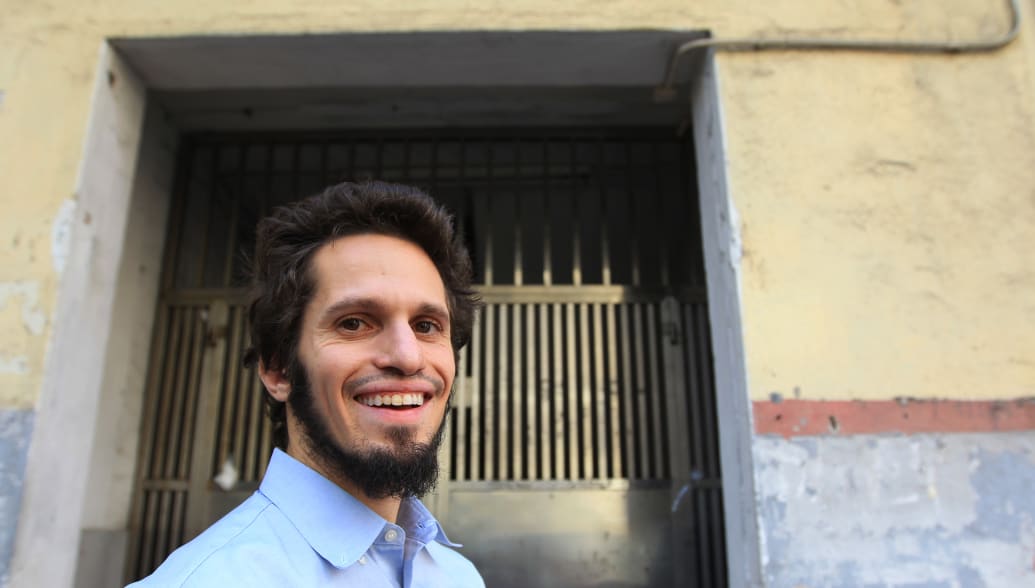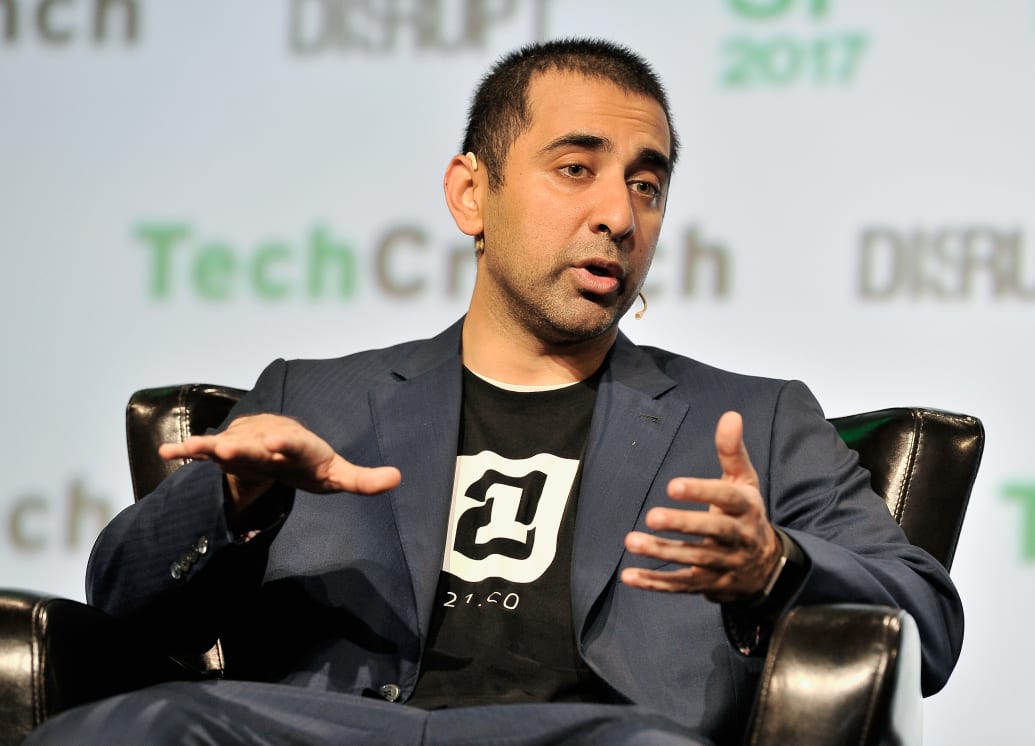What the projects have in common is not just their ambitious aspirations for the future, but a shared funding source: a startup-city venture capital fund founded by the grandson of a free-market icon and backed by some of the most powerful tech scions in the United States.
The New VC Idea That Surely Won’t Backfire: Colonies of Tech Bros
Pronomos Capital has raised at least $13.3 million from free-market evangelists including Peter Thiel and Marc Andreessen.
A gleaming, futuristic, tech-bro utopia in the Mediterranean. A crypto paradise on a small, rural island in Honduras. A virtual startup hub in Nigeria, where entrepreneurs can gather and start businesses—tax free.
All of these ideas have attracted interest, headlines, and millions of dollars from investors in recent years, making “startup cities” a hot topic of conversation in Silicon Valley. (Look no further than the proposed new city in Solano County, California, funded by some of the wealthiest names in tech.) But what the above projects have in common is not just their ambitious aspirations for the future, but a shared funding source: a startup-city venture capital fund founded by the grandson of a free-market icon and backed by some of the most powerful tech scions in the United States.
Their ultimate goal? To unite these cities into an ideologically aligned, lightly governed, VC-backed state.

Patri Friedman, grandson of revered American economist Milton Friedman
Jonathan Wong/Getty
Pronomos Capital’s sparse, muted website disguises its lofty aspirations—and millions in funding. The venture capital firm, founded in 2019, has raised at least $13.3 million from free-market evangelists including Peter Thiel and Marc Andreessen. Its mission, according to the website, is building a “new model for urban development” where “the city is the product” and “everyone has access to fair and reliable governance.” In a 2020 podcast episode, founder Patri Friedman described the company as “the first venture fund dedicated to charter cities.”
In practice, this means Pronomos funds the creation of privately owned and operated cities in developing countries, where investors can experiment with new forms of business, government, and even medical treatments without burdensome government regulations. Friedman maintains that this is a philanthropic endeavor—his Twitter bio reads “alleviating global poverty with startup cities”—but there are plenty who disagree.
- “It’s basically a colonial endeavor that they’re involved in,” Sarah Moser, a geography professor at McGill University who specializes in new cities, told The Daily Beast.
- “They want to have a boys-only treehouse where they can go and do their bad-boy stuff and then come back to civilization,” she added.
- “They’re little boys who don’t want anyone to be the boss of them.”
- Before moving to Austin earlier this year, Friedman and his then-wife lived in a polyamorous commune in Mountain View, California, which they co-created with several other couples. (Friedman later “came out” as monogamous in a since-deleted blog post.)
Friedman says he became interested in start-up cities because he was dissatisfied with existing options for how to live. In the 2020 podcast interview, Friedman said he was “frustrated with the U.S.” and “didn’t see much potential for political change, because I had a minority view and this is a democracy.” Failing to find any more appealing alternatives abroad, Friedman took to the sea.
In 2008, Friedman founded the Seasteading Institute—an undeniably outlandish enterprise promoting the formation of independent nations on the ocean. It’s a concept that probably would have gotten little attention if not for a $1.7 million investment by Thiel, the major GOP donor with a documented desire for exploring independent societies. Thiel’s donation put the Seasteading Institute on the map, but only as a concept: 15 years after its founding, there are zero operating sites—likely because, as Thiel acknowledged, floating cities are “not quite feasible from an engineering perspective.”

Peter Thiel at the Bitcoin 2022 Conference.
Marco Bello/Getty
Friedman himself left the institute in 2011 for another city incubator called Future Cities Development, Inc., which aimed to create charter cities in Honduras. A year later, however, the Honduras Supreme Court ruled the law allowing for privately run cities unconstitutional, effectively ending the project. Friedman liquidated the company and returned to his old job as a software engineer at Google.
Neither of these misfires dulled Thiel’s enthusiasm for Friedman’s ideas. In 2019, when Friedman announced the creation of Pronomos, Thiel and a group of prominent tech evangelists like Andreessen, early Bitcoin investor Roger Ver, and former Coinbase CTO Balaji Srinivasan invested $9 million in the fledgling company. The investors shared an embrace of technology, especially cryptocurrencies, and a disdain for government regulation. But the motivating factor for many seems to be darker, and deeper: disillusionment with modern American society—and a desire to get out.
Perhaps the clearest articulation of this sentiment is Srinivasan’s 2013 speech to a group of budding entrepreneurs at the startup accelerator Y Combinator. In the speech, titled “Silicon Valley’s Greatest Exit,” Srinivasan argued that the tech sector had grown more powerful and more important than the press, the finance industry, Hollywood—even the government.
“We’re putting a horse head in all of their beds,” he said. “We are becoming stronger than all of them combined.”

Balaji Srinivasan sunk millions into Pronomos.
Steve Jennings/Getty
Soon, Srinivasan warned, people working in those industries would start to get jealous and blame society’s ills on them. If tech titans didn’t push back, he argued, they would find themselves the villains of the country they were so active in shaping.
The answer? To leave.
“What do I mean by Silicon Valley’s ultimate exit?” he said. “It basically means: Build an opt-in society, ultimately outside the U.S., run by technology. And this is actually where the Valley is going.”
- Yarvin, a political blogger beloved by figures like Steve Bannon and Blake Masters, believes that countries should be run less like democracies and more like businesses, with a CEO at the top and residents and workers at the bottom.
- The workers would have no votes and no voice—only the option to leave.
- Land, an equally far-right philosopher from the U.K., summarized the theory in his 2012 essay on “The Dark Enlightenment,” writing: “No voice, free exit.”
- “Yarvin thinks the best model isn’t a democratic one, it’s a marketized one,” Burrows told The Daily Beast, adding that the issue then becomes how to make government a product people can pick and choose.
- ”The logical conclusion of that is that you actually commodify governance itself,” he said.
Friedman espoused similar viewpoints in 2002, when he wrote an article suggesting the creation of new governments to foster competition and improve outcomes. In the 2020 podcast interview, he explained that he sees governance not as society but as software; a tech product that can be rolled out in different markets at a low marginal cost. His biggest challenge, he said, is people viewing government “through these old models of morality, or representing the view of the people, or representing some kind of national identity.” What he really wants, he added, is to “get them to think of it as a product.”
Friedman contends that startup cities will be something like laboratories; blank spaces for free thinkers to experiment with different forms of government. He insists that doing so would improve the lives of the local population and, in a tweet about this journalist’s request for comment, accused her of ignoring his “20 years of work enabling people to live together in new ways and my current focus on alleviating global poverty.”
He added in an email to The Daily Beast: “I don’t promote ‘exit over voice,’ they complement each other, exit just happens to be the weak one right now.”
But it is clear that both he and Thiel have a penchant for Yarvin’s anti-democratic philosophies. Thiel has invested repeatedly in Yarvin’s various startups and famously declared in 2012 that he “no longer believe[s] that freedom and democracy are compatible.” (In a recent Atlantic profile titled “Peter Thiel Is Taking a Break From Democracy,” the author reveals that Thiel has a sculpture in his office depicting the entrepreneur as a valiant knight trying to slay monsters labeled “Fair Elections” and “Democracy.”) Thiel did not respond to a request for comment.
Friedman, meanwhile, listed Yarvin’s blog as suggested reading material in a 2009 essay and later praised the philosopher—who goes by the pen name Mencius Moldbug—on Facebook, writing: “I’ve belatedly but happily discovered that Mencius is no longer an obscure single voice, but has somehow managed to inspire an entire school of red pill political philosophy.” Srinivasan, the Y Combinator speaker and a Pronomos adviser, also associates with Yarvin. In 2013, following an unflattering article about the ties between Silicon Valley and neoreactionary thinkers, he emailed Yarvin to suggest they “sic the Dark Enlightenment audience on a single vulnerable hostile reporter to dox them and turn them inside out,” according to The New York Times.
“We are talking about fascism,” Burrows said of the government-as-business ideology. “We are talking about the application of corporate models to everyday life… What it lacks is any understanding of those non-modified aspects of life, like care and emotion, and irrational human attachment to places and to people.”
Some of these theories have reportedly found a home in Praxis, a startup city concept in which Pronomos invested in 2021 and which features prominently on its website. Started by 27-year-old college dropout Dryden Brown and former Boston College wide receiver Charlie Callinan in 2019, Praxis is an as-yet unbuilt city “somewhere in the Mediterranean” that aspires to become a 10,000-person “city of the future.” The founders made a splash this summer with a string of recruitment parties in New York attended by downtown scenesters like Red Scare podcaster Dasha Nekrosova and covered by outlets like Air Mail and New York magazine.
There's more to the story >>



No comments:
Post a Comment